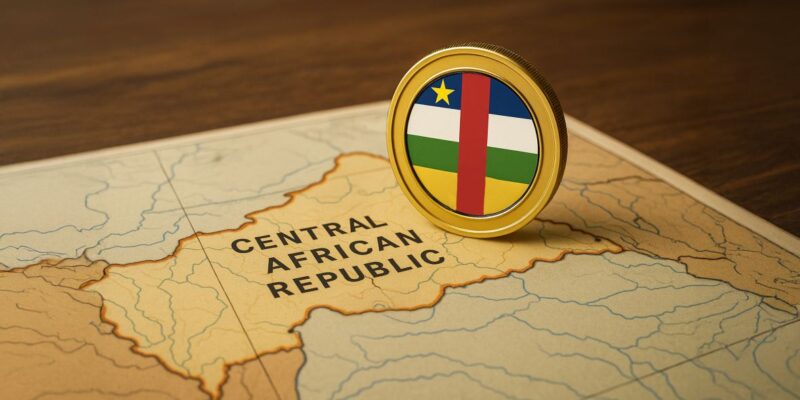
Key takeaways
- The Central African Republic has officially tokenized 1,700 hectares of land, accessible only via its native memecoin, CAR, on the Solana blockchain.
- The tokenized land, located west of Bossongo village, is linked to potential mining purposes
- President Faustin-Archange Touadéra called the move the “dawn of a new era,” reaffirming his commitment to integrating cryptocurrency into national development.
- The CAR token has surged over 300% in two months, with a $54 million market cap and $9.2 million in daily trading volume, defying broader crypto market trends.
- Analysts expect further gains, with up to 93% growth potential, suggesting rising investor confidence in government-backed crypto projects.
In a pioneering move set to redefine land management, the Central African Republic (CAR) has officially tokenized 1,700 hectares of national land, making access to it available exclusively through its native memecoin, the Central African Republic Meme (CAR).
The landmark initiative, announced by President Faustin-Archange Touadéra on his official X account, signals a significant shift towards leveraging blockchain technology for national development and resource distribution.
Strategic Land Allocation and Mining Prospects
President Touadéra hailed the initiative as “the dawn of a new era,” emphasizing its potential to bring unprecedented transparency and broader access to national resources. The tokenization process is built on the Solana (SOL) blockchain, chosen for its renowned speed and efficiency in handling decentralized transactions.
“From this June, land usage rights will be accessible online through $CAR on Solana, marking a new chapter in inclusive access and transparency,” President Touadéra stated, underscoring the CAR’s commitment to digital innovation.
The newly tokenized land is situated west of Bossongo village, approximately 45 kilometers from the capital city of Bangui. It spans an area equivalent to nearly 2,500 football fields. The presidential decree hints at potential mining purposes for this land, referencing the country’s mining code and 2023 laws on tokenizing natural resources.
Mining plays a crucial role in the CAR’s economy, a sector that has previously garnered international attention, notably with the involvement of Russian-backed Wagner Group mining projects under President Touadéra’s leadership.
This latest decree aligns with President Touadéra’s ongoing strategy to integrate cryptocurrency with national development, offering digital alternatives to traditional asset ownership and management.
The announcement has sent significant ripples through the global crypto market. Despite prevailing bearish trends, the CAR token has defied expectations, surging by over 300% in the past two months. Its fully diluted market cap now stands at approximately $54 million, with daily trading volumes averaging $9.2 million.
Crypto Market Reacts to CAR’s Bold Move
Crypto analysts are projecting further upside for the CAR token, with some forecasting up to 93% growth, potentially driving the token back to its all-time high of $0.77. The impressive surge in CAR’s value reflects increasing investor confidence in blockchain-based national initiatives and signals a growing appetite for regulated digital assets.
By seamlessly blending digital finance with natural resouhttps://timescrypto.com/zimbabwe-launches-blockchain-registry-for-carbon-credit-trading/rce management, CAR is positioning itself at the forefront of blockchain innovation in Africa. As the nation embarks on this ambitious endeavor, the global crypto community is keenly observing how this fusion of technology, land, and policy will reshape access to resources within the region and potentially serve as a model for other nations.
Read more: What Are Memecoins? The Fun and Volatile Side of Crypto


